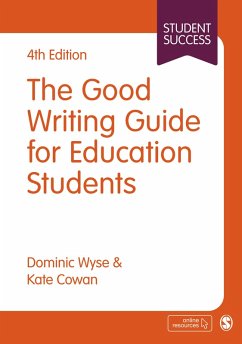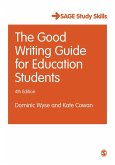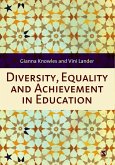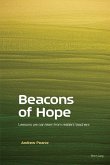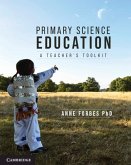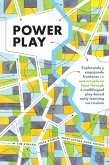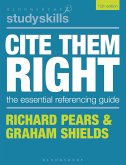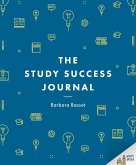Grappling with grammar? Worrying about referencing?
This handy guide is packed with practical advice on how to search for reading materials, structure your academic writing, think critically, reference appropriately and use language effectively. 'Top Tips' throughout the book help eradicate all the common mistakes that bring your marks down.
What's new to the fourth edition?
With real life examples of academic work, and plenty of 'dos' and 'don'ts', this is the perfect writing manual for students studying at all levels, and the ideal book to help you get top marks for all your education course assignments.
The Student Success series are essential guides for students of all levels. From how to think critically and write great essays to planning your dream career, the Student Success series helps you study smarter and get the best from your time at university. Visit the SAGE Study Skills hub for tips and resources for study success!
This handy guide is packed with practical advice on how to search for reading materials, structure your academic writing, think critically, reference appropriately and use language effectively. 'Top Tips' throughout the book help eradicate all the common mistakes that bring your marks down.
What's new to the fourth edition?
- two brand new chapters on reading and writing critically
- activities at the end of each chapter to let you check and assess your own writing.
With real life examples of academic work, and plenty of 'dos' and 'don'ts', this is the perfect writing manual for students studying at all levels, and the ideal book to help you get top marks for all your education course assignments.
The Student Success series are essential guides for students of all levels. From how to think critically and write great essays to planning your dream career, the Student Success series helps you study smarter and get the best from your time at university. Visit the SAGE Study Skills hub for tips and resources for study success!
Dieser Download kann aus rechtlichen Gründen nur mit Rechnungsadresse in A, D ausgeliefert werden.
STUDENT REVIEW:
This is a comprehensive and engaging book for self-study. It has introduced me to the basis of good academic writing, in particular because it uses simple language to explain the many steps taken while reading and writing critically. It goes from reading widely, planning, developing your own voice, critically organizing thoughts to writing a dissertation and proofreading. In other words, I would say that this book goes from A to Z. I feel as if my anxieties, doubts and insecurities with regard to writing have been clarified by a friend. I wish I had read this book before taking a Master s course.
Notes on Specific Chapters
The book is very well organized giving very clear steps to writing your own essay.
The top tips in boxes are important as they draw your attention to relevant points that might otherwise not be noticed if they were in middle of the text. In the same way, the Key Fact, which gives a brief explanation, helps foreign students in particular to understand the basic terminology used in the academic field.
The examples given to illustrate the explanation are very useful because they show in practice how to apply the explanation.
Another strong point of the book is its reference to the chapters, in order to gather more information about what has been explained. In this sense, this book covers all the points that enable students to become effective critical readers and writers. The interesting point is that when you start to read, some questions may be raised but they are then answered through your reading on, so it can be suggested that the book engages in a conversation with you.
It brings to our attention the number of times that an article is cited, which is an indication that the article is relevant academically.
The chapter on criticality, an area which most students find challenging, gives a clear explanation of how to apply critical thinking constructively. It differentiates between the subjective role of the reader and the reader s ability to offer objective criticism.
Although planning your essay beforehand is one of the most important steps, it can be quite tricky but in chapter 4 the book gives a clear idea of how to plan and from where to start.
Writing Chapter: The relevance of the introduction and its connection with the conclusion are given. What I find extremely useful is the guide to writing a strong conclusion, in that it explains that the information contained in it is a reiteration of the points mentioned in the introduction, but with critical engagement. Moreover, the example of subheadings, writing a topic sentence at the beginning of each paragraph in the main body of the essay, is a useful guide as this has clarified to me how to organise my arguments in a more coherent fashion.
The activity proposed in the reference chapter is useful as it checks our understanding and draws our attention to the most common mistakes made while citing.
Viviane Pereira Zanini 20170201
This is a comprehensive and engaging book for self-study. It has introduced me to the basis of good academic writing, in particular because it uses simple language to explain the many steps taken while reading and writing critically. It goes from reading widely, planning, developing your own voice, critically organizing thoughts to writing a dissertation and proofreading. In other words, I would say that this book goes from A to Z. I feel as if my anxieties, doubts and insecurities with regard to writing have been clarified by a friend. I wish I had read this book before taking a Master s course.
Notes on Specific Chapters
The book is very well organized giving very clear steps to writing your own essay.
The top tips in boxes are important as they draw your attention to relevant points that might otherwise not be noticed if they were in middle of the text. In the same way, the Key Fact, which gives a brief explanation, helps foreign students in particular to understand the basic terminology used in the academic field.
The examples given to illustrate the explanation are very useful because they show in practice how to apply the explanation.
Another strong point of the book is its reference to the chapters, in order to gather more information about what has been explained. In this sense, this book covers all the points that enable students to become effective critical readers and writers. The interesting point is that when you start to read, some questions may be raised but they are then answered through your reading on, so it can be suggested that the book engages in a conversation with you.
It brings to our attention the number of times that an article is cited, which is an indication that the article is relevant academically.
The chapter on criticality, an area which most students find challenging, gives a clear explanation of how to apply critical thinking constructively. It differentiates between the subjective role of the reader and the reader s ability to offer objective criticism.
Although planning your essay beforehand is one of the most important steps, it can be quite tricky but in chapter 4 the book gives a clear idea of how to plan and from where to start.
Writing Chapter: The relevance of the introduction and its connection with the conclusion are given. What I find extremely useful is the guide to writing a strong conclusion, in that it explains that the information contained in it is a reiteration of the points mentioned in the introduction, but with critical engagement. Moreover, the example of subheadings, writing a topic sentence at the beginning of each paragraph in the main body of the essay, is a useful guide as this has clarified to me how to organise my arguments in a more coherent fashion.
The activity proposed in the reference chapter is useful as it checks our understanding and draws our attention to the most common mistakes made while citing.
Viviane Pereira Zanini 20170201

